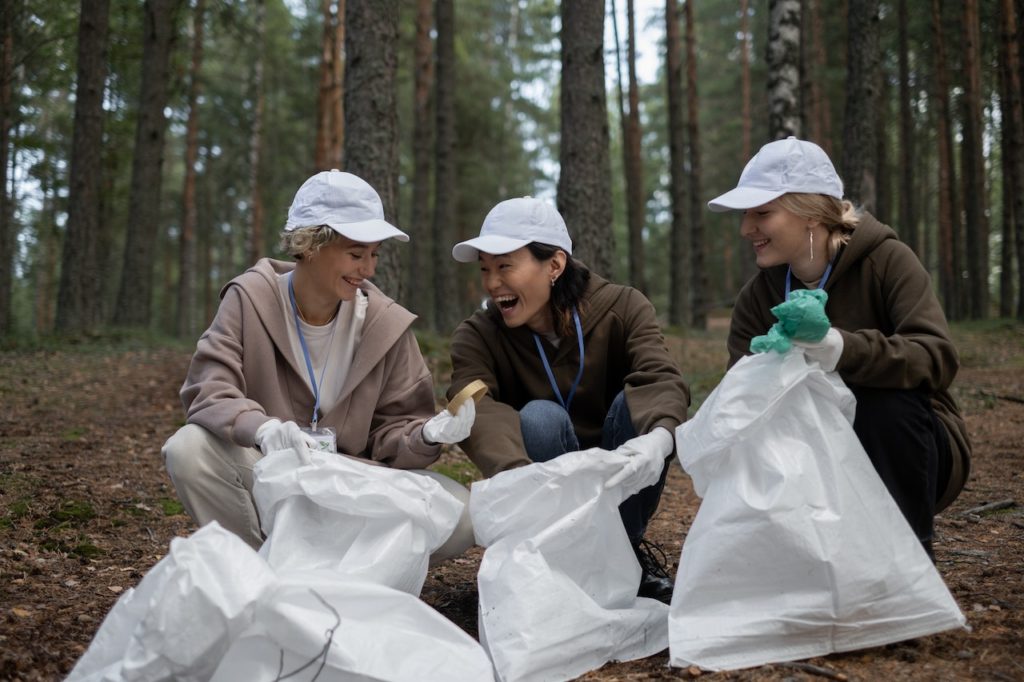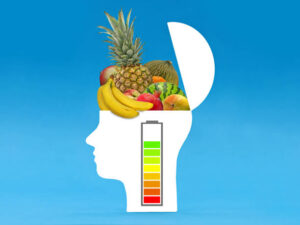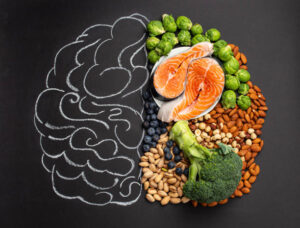It is becoming increasingly difficult to ignore the frightening signs of global warming. Every individual must find a way to contribute to environmental conservation.
By joining the movement, ordinary activities, such as reducing water waste, recycling, and switching to energy-efficient lighting, can have a great impact on the environment.
It is easy to believe that your own choices do not affect the environment. Besides, what can one person do to effect change in the environment?
In reality, quite a lot. There is a greater impact on environmental conservation from our personal decisions at home than you may imagine.
Choosing eco-friendly products from companies that are committed to reducing climate change and ensuring environmental conservation is a simple way to help.
You may not realize how easy environmental conservation is. Consumers around the globe are demanding safe, eco-friendly products. You can start with these ideas.
15 Ways to Help in Environment Conservation
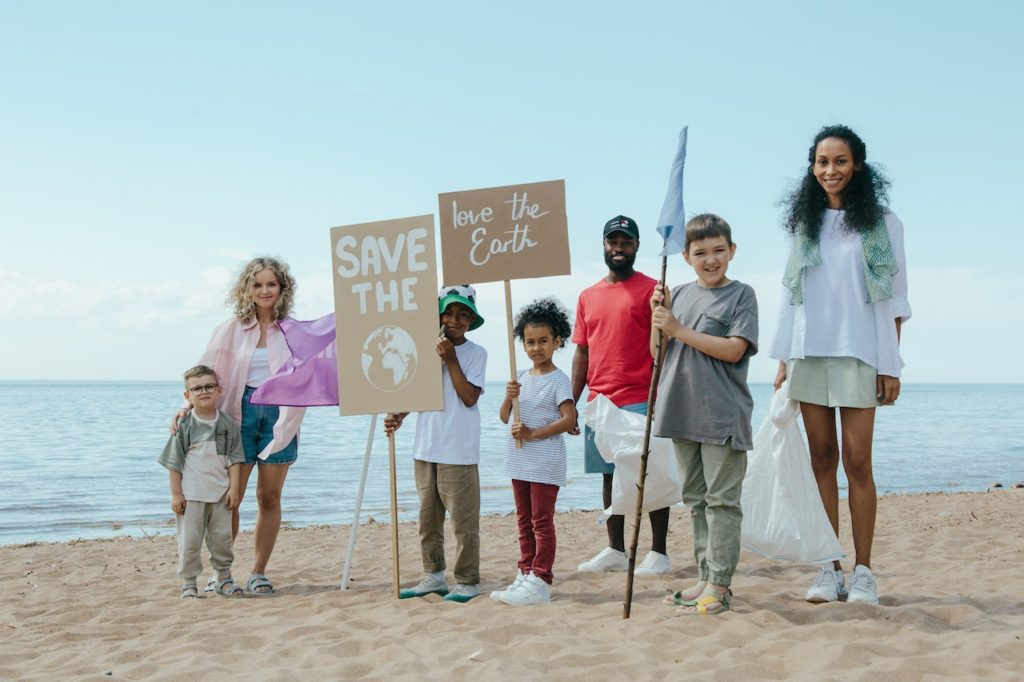
It doesn’t matter what you do to improve environmental conservation – small steps like turning off the lights when you leave a room or larger ones like reducing meat consumption.
Here are 15 eco-friendly ways to ensure environmental conservation. We can make more of a difference if more of us adopt these lifestyle changes. Let’s begin!
1. Tree-planting
During the process of absorbing CO2 and other harmful pollutants, trees release oxygen into the atmosphere.
The oxygen produced by one large tree is enough to provide oxygen to four people for a day.
There are many benefits to planting trees in your yard, aside from the environmental ones. Your home will also benefit from it!
In the long run, trees can save you money by reducing the amount of work required by your HVAC system to cool your home.
Also, planting one tree in your house can raise its value by 2%, and having multiple trees raises the value of your home by 9%.
2. Monitor your energy usage
Using less energy and utilizing it wisely becomes even more important as energy bills rise. You can take the following steps to ensure environmental conservation.
Invest in energy-saving fluorescent light bulbs instead of incandescent bulbs. You will save money on electricity bills as well as lower your power consumption.
Take regular meter readings and compare consumption to previous months. Remember:
- Be sure to take into account the cold weather when comparing energy used for heating. During colder periods, you will use more energy.
- When comparing energy usage in production, take output into account. Recording energy used per item is the best way to do this.
It is possible to spot areas for improvement by plotting these against each other. It is often possible to save a great deal of money by making small changes.
You can also use renewable energy sources to power your house to reduce your carbon footprint and guarantee environmental conservation.
3. Eat a vegetarian meal for one day
Just ONE vegetarian day a week can make a huge difference in reducing climate change caused by animal agriculture and ensuring environmental conservation.
Taking advantage of the abundance of meat available, factory farming has been used to produce enough meat for us to consume.
By reducing the consumption of meat by one day each week, the US could save more than 1.4 billion animals, thus promoting environmental conservation!
A major contributor to climate change is animal agriculture or factory farming. To make one pound of beef, 1,799 gallons of water must be used, and 260 million acres of forest must be cleared. Is that burger worth it?
Let’s put it this way: If everyone in the U.S. cut down on their meat intake for one day a week, 7.6 million cars would be taken off the road and 1.4 billion animals would be saved from being raised for meat.
4. Don’t use single-use plastic cups and bottles – use reusable ones
It takes centuries for plastic packaging to decompose, harming wildlife and releasing toxic chemicals into the environment.
Single-use plastic bottles are the most common type of packaging found in our oceans, and non-recyclable plastic packaging needs to be phased out immediately.
According to Oceana, approximately 5 trillion pieces of plastic weigh 250,000 tons in the ocean, and 12 million tons of plastic enter the ocean every year. Plastic waste has been recycled in only 9% of all cases.
Making the switch to reusable bottles, cups, and shopping bags can make a significant impact on our oceans, landfills, and green spaces.
5. Reduce water consumption
We’ve become accustomed to having ‘unlimited supplies’ of water even though distilling and cleaning water requires a lot of energy. There is no such thing as an unlimited resource.
You can reduce your daily water usage in a variety of ways, including:
- After a meal, do you have leftover water in your glasses? Use them to water your houseplants
- Reduce your shower time
- Don’t do half-loads of laundry-wait until they’re full
- While brushing your teeth, turn the faucet off
- Water your lawn or garden with a watering can rather than a hose
You can reduce your water usage and help ensure environmental conservation by making these simple changes in your daily life.
6. Always recycle, at home and in the office
Our homes, public buildings, and businesses generate more than 7 million tons of waste annually. Nearly 30% of this waste originates from plastic packaging and food waste, including single-use plastic bottles and coffee cups.
A majority of the 40 million cups thrown away in London each year are not recycled and are either thrown away or burned, according to the Mayor of London’s Environment Strategy. It is the responsibility of office workers to assist in reducing this.
To create a zero-waste city by 2026, London’s mayor is committed to preventing the disposal of biodegradable and recyclable waste.
It is only through collective action that this goal of environmental conservation can be achieved, regardless of where we are located.
7. Unplug appliances and devices
It is common for us to leave plugged-in devices and appliances unattended most of the time. However, these items still consume electricity even when turned off.
After using these devices – phone chargers, televisions, toasters, computers, hair straighteners, and so on – make sure that they are unplugged.
Unplugging items in each room of your home may not be necessary, but remaining aware of this simple change is a good start toward environmental conservation.
If you are not using devices or appliances, unplug them rather than simply turning them off. It won’t be long before this becomes a habit that cuts down on home energy usage!
8. Buy sustainable goods
Plastic pollution endangers both land and marine life, which contributes significantly to soil and marine pollution.
Often, animals mistake plastic for food and consume it because it isn’t biodegradable. Consider the environmental impact and disposal of a product before purchasing.
As consumer habits change, companies are being pushed to become more sustainable as a result of their ecological footprint.
Sustainable brands are readily available today, and it is easier to find out about a product’s origin, materials, and recycling capabilities.
You can replace plastic with more eco-friendly alternatives when purchasing school and office supplies, toys, or home accessories.
A great way to minimize carbon footprint is also to purchase local products and produce because goods do not have to travel farther distances and consume more fuel. Find out if there are any eco-stores nearby.
As a result, you’ll be ensuring environmental conservation, sustaining local economic activity, and creating jobs by supporting small businesses.
9. Reduce meat and dairy consumption
Global warming is primarily caused by greenhouse gases like methane. Over the past few decades, the number of livestock farms has increased dramatically due to an increase in demand for meat.
The excessive consumption of dairy and meat negatively affects our climate since livestock emit large amounts of methane into the atmosphere.
In addition, unsustainable cattle and dairy farming destroys wetlands and forests of ecological importance.
Hundreds of species of animals depend on each other for survival, so deforestation to house them is damaging habitats and natural ecosystems.
Therefore, eating less meat and dairy products and shifting towards a vegetarian diet is the only way to prevent more damage.
10. Avoid practices that harm the ocean
Pollution and unsustainable fishing methods are two of the primary practices that directly harm endangered and threatened species.
In addition to cosmetics containing microplastics, Oceana recommends avoiding jewelry produced from sea turtle shells or coral.
Unsustainable fishing and ecosystem destruction are caused by these products. A good step toward environmental conservation is to protect our ocean bodies.
11. Donate items you no longer use
A man’s trash may be another man’s treasure! Consigning items or donating old items to a local charity is an excellent alternative to throwing them away.
You can easily donate old clothes, appliances, and cell phones within your community. Take the time to research ways to use your older items for the benefit of others and the environment.
You can reduce unnecessary waste more than you might think by donating gently used items. You can make even more eco-friendly home decisions besides these.
To purify your indoor air, use essential oils or houseplants. It is not only beneficial to you but also to the environment when you make small changes like these.
Ultimately, focus on finding products and services that are environmentally friendly and beneficial to the fight for environmental conservation.
12. Volunteer with environmental bodies
It doesn’t matter how large or small the initiative is, integrating environmental conservation into your life can make a significant difference.
Internationally, there are several successful environmental groups and non-governmental organizations led by youths that are setting an example.
Alternatively, you can assist environmental community groups and non-profit organizations if you’re not interested in cleaning up the environment.
You can participate in several ways, like running online campaigns, participating in beach clean-ups, or holding fundraisers.
13. Produce your cleaning products
White vinegar and baking soda clean almost everything, so making your cleaning products at home is way easier than it sounds.
In addition to reducing packaging waste from buying cleaning products at the store, homemade cleaning products protect household surfaces from harsh and potentially harmful chemicals.
14. Do your best to reuse what you can
We have more opportunities in our everyday lives to reuse items that would otherwise be thrown away. Tissue paper and gift wrap are good examples.
What is the average number of gifts you wrap yearly? There’s no doubt you wrap more than your fair share of gifts for birthdays, anniversaries, and holidays.
Consider keeping bags, tissues, bows, and other items rather than throwing them away. It is easy to reuse tissue paper, festive bows, bags, and boxes for multiple occasions.
Even if wrapping paper cannot always be reused, recycle it whenever possible. You can also get creative and create your gift wrap from old magazines and newspapers.
You can make an impact on environmental conservation if you shop responsibly and reuse as much as possible.
15. Don’t buy more than you need
Last but not least, consider your buying habits. Is your shopping list too long? Could you do without some things you don’t need? Do you consume responsibly?
Buying more because of discounts or tempting offers not only costs us more, it also hurts the fight for environmental conservation.
The less waste you generate, and the less pollution you create, the better. This applies to groceries, clothes, accessories, and home products.
Our excessive consumption of natural resources can undermine the biodiversity of our planet because natural resources are limited.
Environmental Conservation: Getting Started with Small Changes at Home
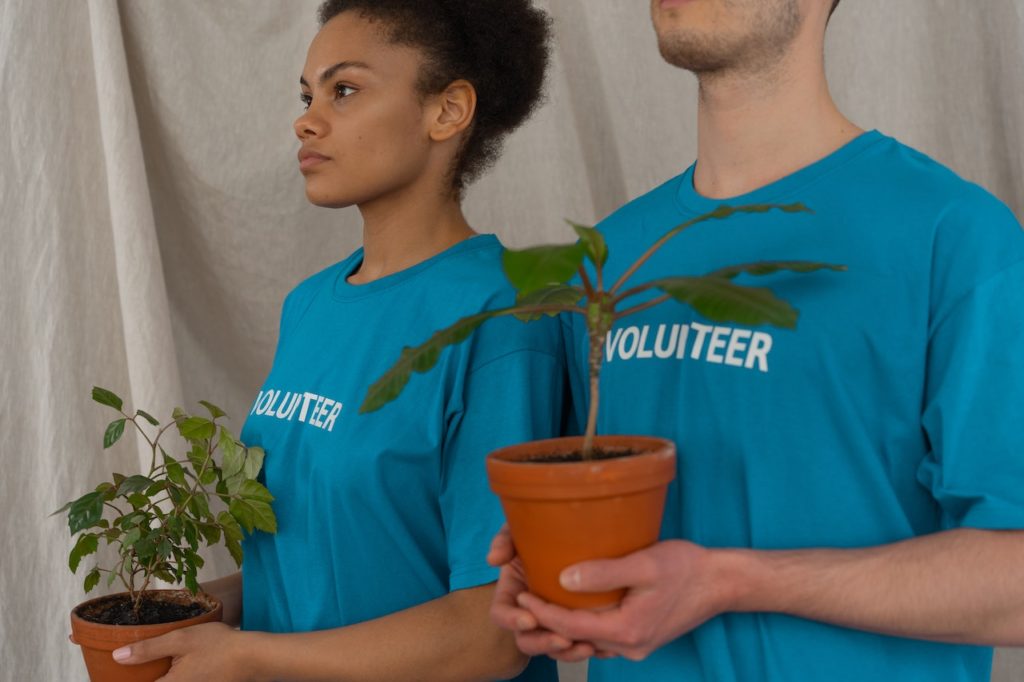
We should take it one step at a time rather than getting overwhelmed by all that can be done (or isn’t being done) to help in environmental conservation.
Throughout the month, implement just one thing that will improve any aspect of your life – diet, water conservation, the kitchen, and so on.
Don’t worry if you can’t incorporate all of these at once, it takes time to make something a habit. Keep in mind that you can make a big difference by making small changes.
Kitchen
We can heal our planet by making simple everyday choices in the kitchen. Support eco-conscious companies that supply eco-friendly kitchen appliances.
Do not use single-use products in the kitchen. Replace paper towels with cotton towels. Instead of using paper plates, use real dishes.
You can use fabric bowl covers or beeswax paper instead of plastic wrap. Rather than using plastic food bags, switch to reusable and washable silicone bags.
Don’t buy or use plastic containers. Replace them with metal ones or tempered glass. When storing items in the fridge, mason jars are a low-cost and beautiful solution.
Use clean alternatives instead of chemicals in your kitchen. The number of companies producing natural cleaners is growing, and you can find them in most grocery stores these days.
A combination of essential oils, white vinegar, and lemon juice can also be used to make your cleaning products at home and ensure environmental conservation.
Bathroom
In this essential room, you can make several small changes. Reduce your waste and landfill contributions by starting small.
Make your cleaning products and body products last longer by buying glass bottles and spray bottles, then buying large refills to reduce the number of containers you have to throw away.
Additionally, you can use bar soaps, shampoos, and conditioners to eliminate the need for containers. If you have the time and desire, you can also make these products on your own.
Get rid of any disposable items in the bathroom. Use reusable cotton wipes and cotton balls instead of disposable ones, or just use the same cloth you use when washing your face instead.
Use bamboo toilet paper instead of one made from tree pulp. Using a bidet attachment on your existing toilet will help you conserve water.
Putting an end to the endless stream of plastic toothbrushes is the best way to save the environment. Replace your brushes with bamboo ones. They are biodegradable and will last longer.
Backyard
It is important to have a beautiful yard, but it is also important to keep it sustainable. Invest in electric lawn tools instead of gas-powered ones.
While most people are familiar with the dangers of car emissions, the typical lawn mower also emits highly toxic levels of carbon dioxide.
Choose plants and greenery that are native to your area. In addition to repelling insects naturally, they require less water since they are adapted to their natural surroundings.
For bees and butterflies, make sure your garden is full of flowering shrubs and plants.
Additionally, you can make use of rainwater for watering your lawn by setting up a water barrel and using solar lighting throughout your outdoor areas.
There is a lot a person can do to slow down the adverse effects of climate change on our planet, even if they think they can’t make any significant influence.
As an individual, you can make a lot of small changes to ensure environmental conservation. Millions of people could save the planet if they made a few small changes.
Conclusion
Every day, we hear about how the environment is in distress and the need for environmental conservation.
Thinking about how much waste we create every day can be overwhelming when we take a moment to think about all the things we do. How do we even get started with environmental conservation?
It’s great to know that there are several small things you can do to reduce your carbon footprint at home, at work, in your diet, and so on.
We can make a difference if we all chip in! When it comes to environmental conservation, small actions can have a big impact.
Frequently Asked Questions (FAQs)
What can I do to reduce plastic waste?
Get started with environmental conservation by keeping a reusable shopping bag, water bottle, and coffee cup on you.
Choose reusable straws instead of single-use plastic ones. A small change in the choices we make can have a big impact!
Can houseplants improve air quality in my house?
Without a doubt! As a result of houseplants, indoor air becomes cleaner since pollutants are absorbed and oxygen is released. Your living space will be green and beautiful with them.
How can I reduce food waste?
To ensure environmental conservation, put your creativity to work in the kitchen! You can prepare delicious meals from overripe vegetables and fruits or freeze them for future use. Take advantage of leftovers by planning your meals and buying only what you need.
Are energy-efficient appliances worth the investment?
Yes, of course! In the long run, you will save money and guarantee environmental conservation by buying energy-efficient appliances. Electricity bills are lower because they consume less energy. Moreover, you’ll be contributing to a greener future by reducing your carbon footprint.

